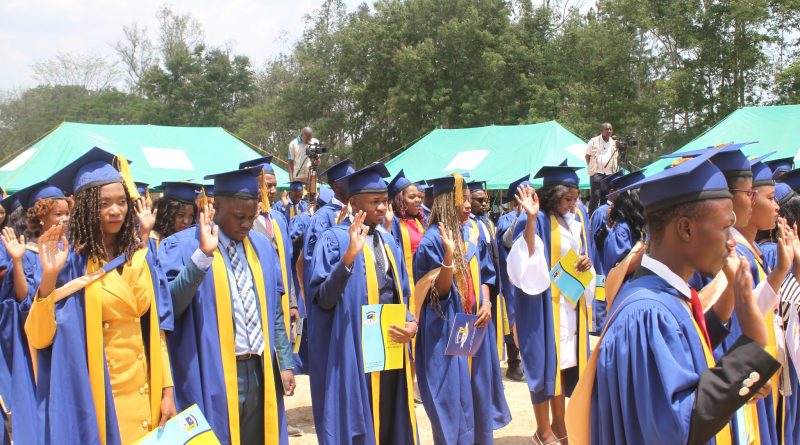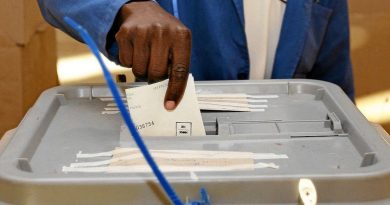‘We have to promote a serious culture of reading and writing’
The bishops of the Episcopal Conference of Malawi held their second plenary session of the year from Monday June 26 to Friday June 30 2023. At the conclusion of their plenary, the bishops have among other things, resolved to appoint Rev Fr Dr Wilfred Sumani as acting Vice Chancellor of the Catholic University of Malawi as Rev Fr Dr George Buleya has successfully completed his tenure as Vice Chancellor of the University. Editor of The Lamp magazine Joseph Kayira caught up with the new Vice Chancellor for a chat. The excerpts.
Congratulations on your appointment as the Acting Vice Chancellor of the Catholic University of Malawi.
Thank you very much, and I do appreciate this opportunity to be featured in The Lamp. It’s a magazine we have grown up with. It has supported this country in critical moments.
Who is Rev Fr Dr Wilfred Sumani?
I am a Jesuit priest, born a few miles away from Lake Malombe in Mangochi District.
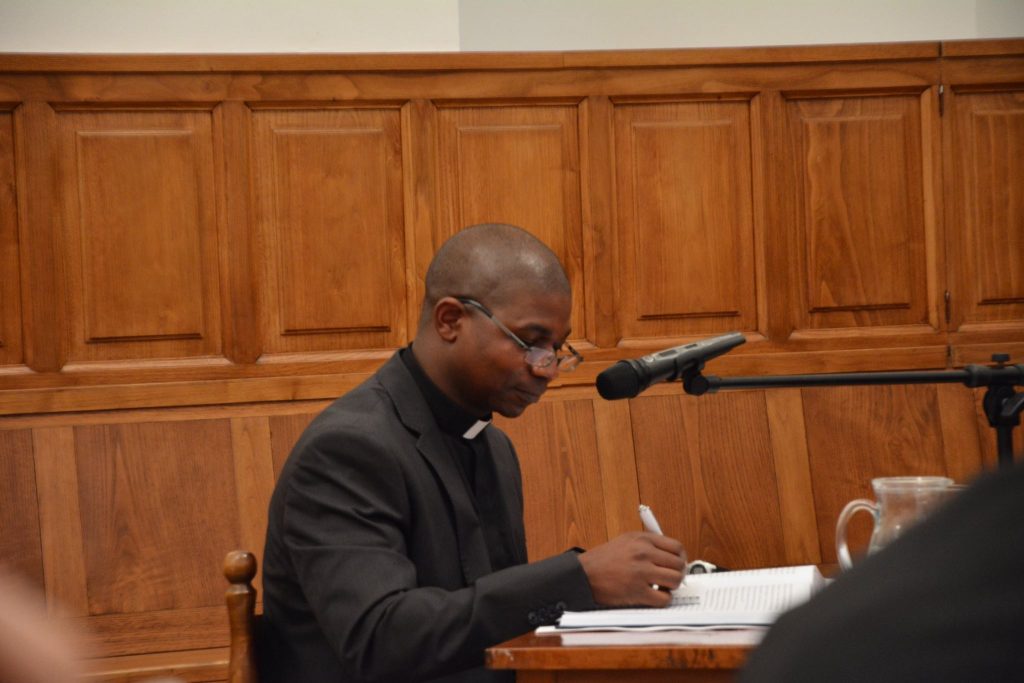
Fr Dr Sumani: The new vice chancellor of the Catholic University of Malawi (Photo Credit: Southern Africa Jesuits, Zambia-Malawi)
Tell us more about your education background.
My academic journey started in October, 1984, at Misolo Primary School located about three miles away from my home village. Then I proceeded to Bangala Full Primary School in Ntcheu, where I did Standard Six, and then transferred to Namandanje Full Primary School in Machinga, for Standards Seven and Eight. Thereafter, I attended St. Paul the Apostle Minor Seminary in Mangochi for my secondary education.
I did my first degree (Philosophy) at Arrupe Jesuit College (now Arrupe Jesuit University), then a constituent college of the University of Zimbabwe. I obtained my second Bachelor’s degree (Theology) from Hekima Jesuit School of Theology in Nairobi, an affiliate of the Catholic University of Eastern Africa (CUEA). After my ordination, I went to Rome to pursue specialized studies in sacred liturgy, with an emphasis on liturgical hermeneutics. Two years after completing my doctorate, I enrolled for a Master of Business Administration (Strategic Management) at Daystar University in Kenya.
Can you shed more light on your journey in priesthood?
My vocation to the priesthood was manifested in a combination of play, dreams and serious planning. Growing up, we used to take turns with my nephew Cleopas (gone to the Lord) playing ‘the priest’. These plays were inspired by Montfort Missionaries who used to minister to us. I can mention two priests in particular: Fr. Preda and Fr. Eugenio Cucchi. Then I went to the Minor Seminary, where I felt called to religious life.
The legendary accounts of Jesuits in history books struck a chord in me and I applied to the Society of Jesus during the second term of Form Four. After waiting for two years (1996-1998) I joined the Jesuit Novitiate in Lusaka on 8th July, 1998. After about ten years in formation, I was ordained to the priesthood on 20th June, 2009, at St. Montfort Centre (now parish) at Namandanje Parish. As a priest, I have served at St. Joseph’s Parish in Kasungu; Matero Parish in Lusaka (Zambia) and in many other places in Kenya and Italy.
How did you receive the news that you are now at the helm at the Catholic University of Malawi?
The news caught me off-guard! Totally taken by surprise. Nonetheless, I immediately activated the faith dimension of my life, entrusting the new responsibility to the Lord, the master of the harvest. This is one of the beautiful things about our Christian faith — we have the spiritual resources to help us welcome any development in our lives, positive or negative.
What is your vision for the university?
The Catholic University’s vision is to be a centre of excellence for quality holistic education. Our role as management is to ensure that this vision is achieved. So, that is my vision for the university. At the same time, this vision can take on specific dimensions depending on where the university is at any given time. Where we stand right now, the most palpable dimension of excellence is the diversification of the academic portfolio through introduction of new market-relevant programmes. Heeding Pope Francis’ call in Veritatis Gaudium, excellence means the ability to align our curriculum with the pressing needs of the people of our time.
Are you satisfied with the contribution of the Catholic University of Malawi to the education sector? What are some of the achievements that make you happy?
The Catholic University has made a huge contribution to higher education in Malawi. In the seventeen years of its existence, the University has progressed from being an underdog to stardom in the higher education landscape. It is not vainglory to state that the Catholic University is a pearl of higher education in Malawi.
In terms of achievements, first, the University has over the years produced industry-ready and morally competent graduates. We receive very good feedback from the industry. Second, the University has expanded its academic portfolio from just a few programmes in 2006 to thirty-nine programmes in 2023. To crown it all, the Catholic University has made history by becoming the second institution of higher education in Malawi accredited to offer Bachelor of Laws.
What should be done to make this institution more viable?
Viability is a complex word. You have to look at different dimensions of viability. What comes to my mind is the relevance of our programmes and financial sustainability. Perhaps you appreciate the fact that the higher education landscape in Malawi is growing, thanks to the entry of private universities and colleges, and the delinking of the erstwhile University of Malawi. To be viable, the Catholic University should sharpen its competitive edge by strengthening industry linkages and by exploring new programmes capable of responding to current and emerging needs.
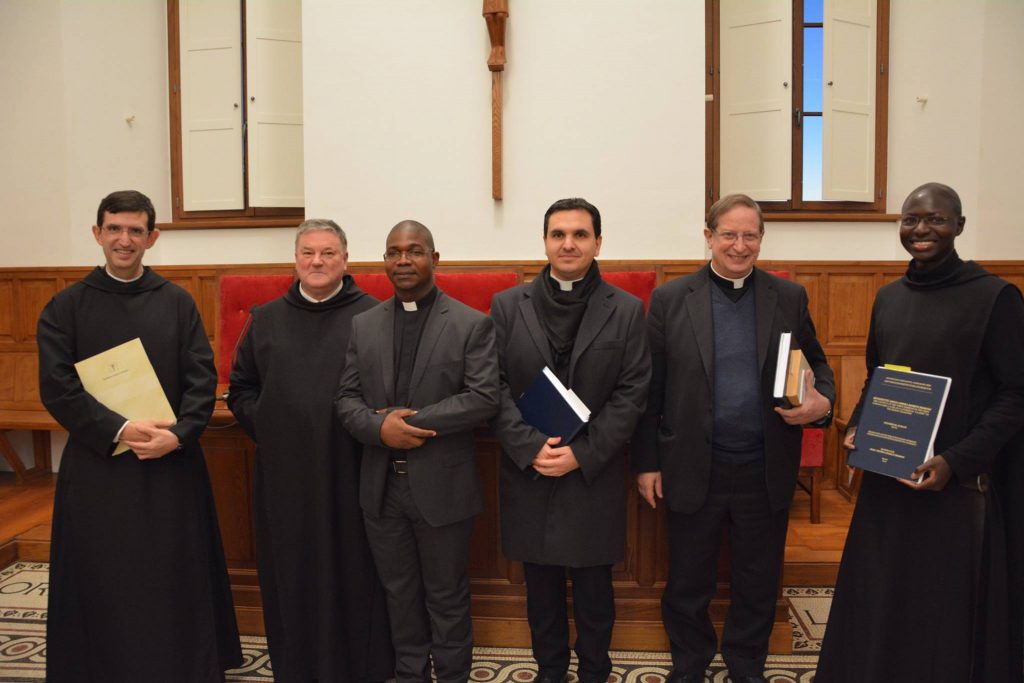
Fr Dr Sumani, SJ with the panel of judges after defending his thesis (Photo Credit: Southern Africa Jesuits, Zambia-Malawi)
In terms of financial sustainability, the University should diversify its revenue away from tuition fees. As a fast-growing institution, the University is bound to consume a lot of financial resources. Currently, we are in the middle of a huge construction project at Nanjiri in Lilongwe. We are also building an office block at Nguludi. Student support programmes also require some money. Therefore, we need to cultivate strong partnerships with donor communities and industry players to finance such projects.
What role should the church play to take the Catholic University of Malawi to greater heights?
Pope Paul VI once described the Church as an expert in humanity. The Church should continue supporting the mission of the Catholic University of Malawi with its spiritual and moral resources. This work should not be left to the bishops alone; in the spirit of synodality, lay people can also help to advance the mission of the University through financial support, advocacy, and prayer. By advocacy I mean pushing the agenda of the Catholic University in both public and private sectors.
University education is said to be expensive; how do you make sure that even the students from poor backgrounds have access to the Catholic University in Malawi?
Yes, higher education requires a lot of financial investment. You may wish to know that Malawi has the lowest tertiary education gross enrolment rate in Africa, at 0.4%. Poverty is one of the factors that prevent people from pursuing higher education. Cognizant of this fact, the Catholic University annually dedicates a percentage of its annual budget to scholarships offered to deserving needy students.
The Students Union, too, do put together some money to aid their colleagues from underprivileged backgrounds. However, these efforts are a drop in the ocean. We need to build a bigger fund for this purpose. With the support of the various stakeholders, this can be achieved. Soon we will announce some concrete steps the University plans to take to build a scholarship fund for needy students.
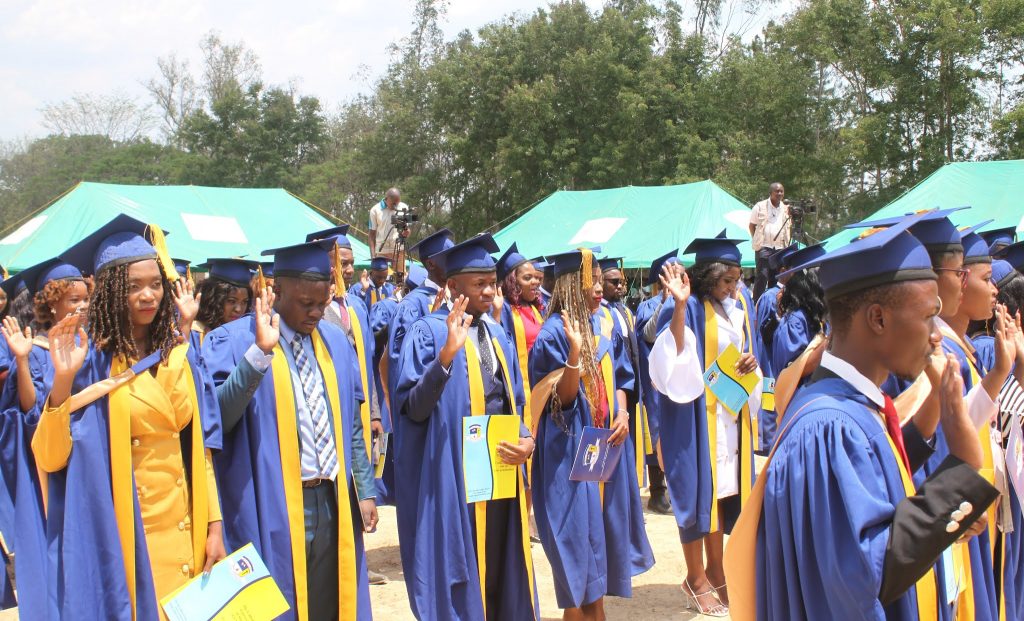
The Catholic University of Malawi is set to expand access to university education (Photo Credit: AMECEA NEWS)
What should be done to make sure that university education in Malawi more equitable and accessible to all?
Access and equity are important goals for higher education in Malawi. The Government, through the Ministry of Education, is pushing on various fronts to ensure that higher education is accessible to all, regardless of one’s gender. This twofold goal can be achieved by expanding the capacity of institutions of higher learning in the country. We can also explore alternative channels of higher education, such as Open Distance and e-Learning (ODeL).
As I speak now, there is a project sponsored by the United States Agency for International Development (USAID) aimed at transforming higher education systems in Malawi. One of the outcomes of this project is to expand access to university education. The Catholic University of Malawi is one of the members of the consortium of change agents. Of course, the elephant in the room is the cost of higher education. It may take years before the country develops the capacity to offer free university education. Until then, we have to continue exploring ways of reaching out to marginalized and underprivileged communities.
How do you deal with funding challenges as regards operations of the university?
Every organisation has to contend with resource constraints. The basic principle of economics is optimization of resources. Money is never too much or too little – it all depends on how you manage it. We at the Catholic University are experts at financial prudence. We simply try not to spend the money we haven’t earned. To do this, we have stringent financial regulations and procurement procedures aimed at aligning expenditure with budgetary provisions. We make every effort to steer away from impulse buying. But that is not enough. We are also working hard to expand our resource envelop through partnerships with like-minded organisations.
Your final word.
The Church has been a champion of education everywhere in the world. The history of university education in the West is inextricably linked with the Church. As the populations dwindle in the West, largely on account of declining fertility rates, the global south will increasingly become an important player in education, including higher education. And we need a strategy to do this well. We have to promote a serious culture of reading and writing in the global south, otherwise we will continue relying on Western knowledge systems, which is a specious form of intellectual colonialism. But this is a topic for another day.

